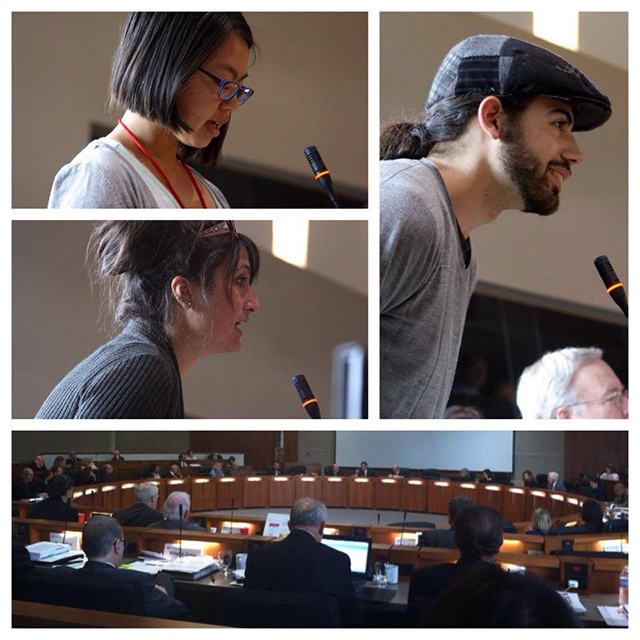
A group of HSU students thinks so. They’ve joined a national campaign to move colleges and universities away from junk food and toward real food. Called the Real Food Challenge, the program uses a network of student activists to promote local, fair, ecologically sound, and humanely produced food.
Their goal? To implement a 20 percent real food purchasing policy across the California State University system by 2020.
“What we’re trying to do is bring back that connection to food that is good for the people and good for the planet,” says Eric Recchia (’14, Economics and Sustainable Development), who petitioned the CSU Board of Trustees to adopt the policy.
“We’re moving away from food that looks good but doesn’t have any nutritional value to food that supports local farms and farmworkers and doesn’t have a devastating impact on the environment,” he says.
The program uses the Real Food Calculator, an online tool that allows schools to enter and analyze their food purchasing records. The system measures performance against a set of benchmarks, then offers concrete data on how a campus is currently supporting its community through its food choices. Students and staff then work together to identify and implement changes to the university’s existing food policy.
“There is a lot of information out there when it comes to the nutritional value of food, and it can sometimes be difficult to make the right choices.” says Jackie Martinez (’14, Sociology), an Associated Students representative involved in the effort. “Through this initiative, we hope to increase healthy food options on campus as well as increase education on the effects of supporting and consuming conventional foods.”
The Real Food Challenge has a precedent in California. In 2009, the University of California system adopted a 20 percent real food purchasing policy by 2020. In 2011, UC Santa Cruz committed to 40 percent real food.
Victor Arredondo (’14, Sociology), Students Affairs Vice President for Associated Students, is challenging HSU to take the proposed CSU policy a step further by committing to 33 percent real food.
“It’s a realistic number for a university that prides itself on the ethos of sustainability,” says Arredondo. “If we can do that, we’re really saying something about ourselves and our community.”
The Board of Trustees will vote on the CSU real food policy at its May 20-21 meeting. You can watch the meeting “here”: http://www.calstate.edu/BOT/. For more information, visit “realfoodchallenge.org”: http://www.realfoodchallenge.org.